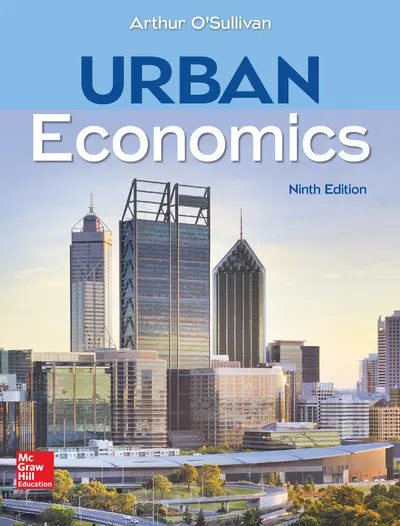My Account Details

ISBN10: 0078021782 | ISBN13: 9780078021787

* The estimated amount of time this product will be on the market is based on a number of factors, including faculty input to instructional design and the prior revision cycle and updates to academic research-which typically results in a revision cycle ranging from every two to four years for this product. Pricing subject to change at any time.
Instructor Information
Quick Actions (Only for Validated Instructor Accounts):
Over the course of two decades, Urban Economics has achieved a worldwide audience, and has been translated into Chinese, Greek, Russian, and Korean. Like the eight previous editions, this edition provides a clear and concise presentation of the economic forces that:
Part I: Introduction and Key Concepts
1. Introduction
2. Key Concepts of Urban Economics
Part II: Market Forces in the Development of Cities
3. Trading and Factory Towns
4. Agglomeration Economies
5. Where Do Cities Develop?
6. Consumer Cities and Central Place Theory
7. Cities in a Regional Economy
8. The Urban Labor Market
9. The First Cities
Part III: Urban Land Use and Housing
10. Land Rent and Manufacturing Land Use
11. Office Space and Tall Buildings
12. Housing Prices and Residential Land Use
13. Distribution of Jobs and People
14. The Monocentric City and Urban General Equilibrium
15. Neighborhoods
16. Land Policy
17. Urban Housing
Part IV: Urban Transportation
18. Cars and Roads
19. Public Transit
Part V: Local Government, Education, and Crime
20. Role of Local Government
21. Local Government Revenue
22. Education
23. Crime
24. Models of Microeconomics
Accessibility
Creating accessible products is a priority for McGraw Hill. We make accessibility and adhering to WCAG AA guidelines a part of our day-to-day development efforts and product roadmaps.
For more information, visit our accessibility page, or contact us at accessibility@mheducation.com
Need support? We're here to help - Get real-world support and resources every step of the way.